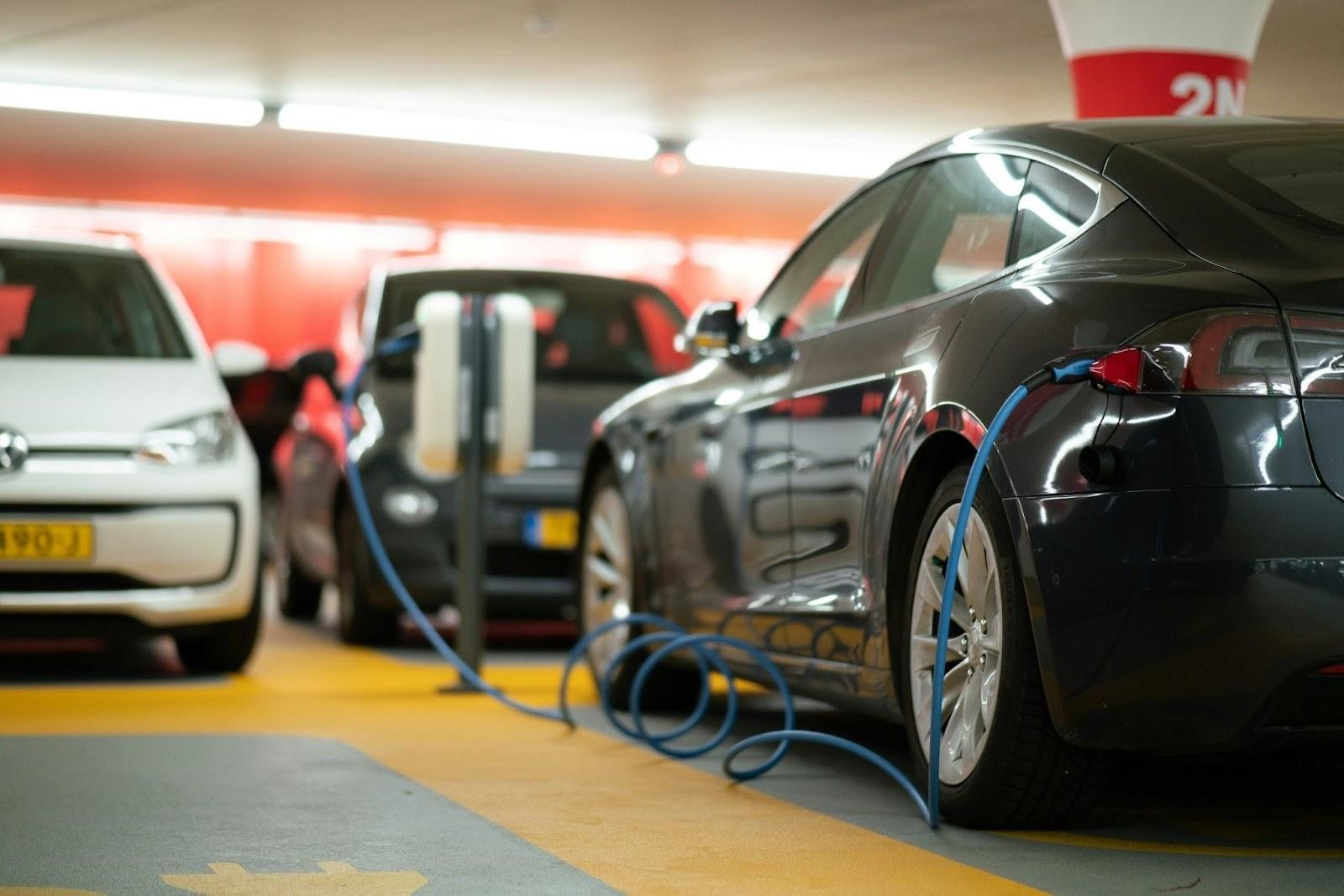Whether you’re new to the world of electric vehicles or you’re already a proud owner of an EV, there’s no denying the impact you can have when you make the switch from gas.
In buying a electric car, you are making a conscientious decision to make things better -- for yourself, for your pocketbook, and for the environment. And with the help of solar panels, you can take this ethical purchasing decision to the next level.
(And not only that, it’s possible you could save big money in the long run!)
Rather than getting gouged by rising fossil fuel and electricity costs, coupling an EV with a solar panel charging station could ultimately reduce your monthly expenditures while decreasing your reliance on potentially harmful energy sources.
So, what’s not to love about solar-powered EV charging? With a little bit of planning and ingenuity, you can your sun-powered car charging station up in no time.
Can you charge an EV at home with solar?
Yes! And it’s actually much simpler to do than you might think. Thanks to rapid advancements in battery storage, EV charger, and solar panel technologies, you can turn your backyard, garage, or driveway into an at-home solar charging station!
How does a solar-powered EV charger work?
Solar panels convert direct sunlight into electricity that can be used to power lighting systems, appliances, and yes, even cars. (That’s how electric cars work, after all.) With the help of a home battery storage option like a Tesla Powerwall 2, you can take electricity created by these panels and store it away for future use.
This electricity can be used to power any level of home EV charging station, including Level 2 chargers that provide quick charging times for a variety of different electric cars and SUVs. There are even charging stations out there that wirelessly connect to your smart devices, allowing you to gauge charge times on the go.
The science of solar-powered energy is pretty complex stuff. But, the technological advances of recent years have made much easier on consumers like you to efficiently harness, store, and use solar-based electricity.
How many solar panels do you need to charge an electric vehicle?
You could feasibly charge an EV with just one solar panel. However, you should tailor your solar-powered EV charging station to your projected monthly needs (and the average amount of sunlight in your area) -- not just its ability to functionally charge your vehicle.
A premium solar panel can easily produce around 1.2 kWh per day with four hours of direct sunlight. With five hours, that number goes up to 1.5kWh. With six, it’s 1.8 kWh.
Depending on how much you charge your vehicle, it may not be feasible for one or two solar panels to be your sole source of energy. After all, a Tesla Model 3 needs about 13 kWh just to go 50 miles.
However, if you’re only driving 300 miles a month -- you might be able to get away with two or three panels. This is especially true if you have a solid battery storage option (or options plural) that can hold anywhere from 12 to 15 kWh at a time.
The average American drives anywhere from 1,000 to 1,200 miles a month. If you’re in this boat, a four or five panel setup could be your best bet.
How long would it take to charge an EV with a solar panel?
At the very most, you’re likely to produce about 2kW of electricity with a single solar panel in a day. That alone would be enough to move a Tesla Model 3 about eight miles.
However, this is where multiple solar panels and battery storage devices can be of help. You can add to your electricity production and storage when you’re not charging your car and then use your reserves to charge the vehicle when necessary. In such a scenario, it’s more about the type of charger your have then the source of electricity.
So, how long does it take to charge an electric car? With a fast EV charger and a solar panel set up, you might be able to fully juice your vehicle in about a half hour!
Is it worth it to build a solar EV charging station?
It very well could be! If you already own an EV, you likely have a home charging station already. And while the investment of purchasing solar panels might be a bit of a put-off at first, they could prove a reliable source of power for more than just your car as the years go on.
Solar panels are the way of a sustainable future. With the help of the sunlight that already hits your property, you can do good by the environment and potentially save thousands down the road. And with the current and future possibilities of electric car subsidy help, what have you got to lose?
What do you need to charge an EV with solar power?
You need three things for a successful solar-powered EV charging system -- solar panels, a device for battery storage, and a compatible EV home charger.
It’s as simple as 1,2,3! The solar panels convert the sunlight that already hits your property into pure electricity. You store that electricity in your home battery storage device and use that to power your EV home charger when you’re ready to charge.
You’re going to need the proper space to make this happen, too, along with a good spot for placing your solar panels.
The more efficient you can make this setup, the better it will be for you and your wallet. The cost to charge an electric car is nothing compared to regular expenditures for electricity and gas!
Your solar panel EV charging station awaits!
The best thing about solar-powered electric vehicle charging is that it makes you feel good about what you’re doing for the environment while also saving you cash. A moderate initial investment could pay huge dividends down the road, regardless of the types of electric cars you prefer. It’s totally worth it for both true EV lovers and those just getting into the electric car game.
Looking for more timely and interesting EV content? Be sure to bookmark us and follow us on Instagram!



